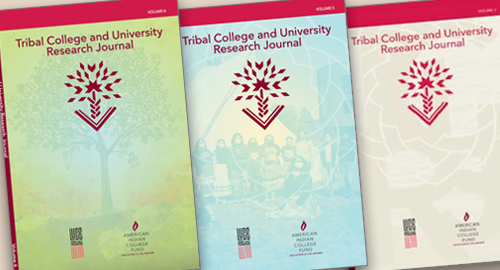American Indian College Fund Hosting Online Book Discussion with Indigenous Author Mona Susan Power
Free Event Scheduled Tuesday, March 26th at 12:00 Noon MDT
February 20, 2024, Denver, Colo.— The American Indian College Fund (College Fund) is hosting a free, online book and author event for the public featuring the PEN Award–winning Native American author, Mona Susan Power, on March 26 from 12-1 Mountain Daylight Time. Power will discuss her new book, A Council of Dolls, with College Fund President, Cheryl Crazy Bull.
Mona Susan Power is the author of four books of fiction: The Grass Dancer (awarded the PEN/Hemingway prize), Roofwalker, Sacred Wilderness, and her most recent novel, A Council of Dolls (longlisted for the National Book Award). She has received numerous fellowships in support of her work, including an Iowa Arts Fellowship, James Michener Fellowship, Radcliffe Bunting Institute Fellowship, Princeton Hodder Fellowship, USA Artists Fellowship, McKnight Fellowship, and Native Arts and Cultures Foundation Fellowship. Her short stories and essays have been widely published in journals, magazines and anthologies, and her essay, “Bloodthread,” is forthcoming in The Georgia Review. Power was born and raised in Chicago, is an enrolled member of the Standing Rock Sioux Tribe (Iháŋktȟuŋwaŋna Dakhóta), and currently lives in Minnesota.
The profoundly moving and unforgettable new novel spans three generations of Yanktonai Dakota women from the 19th century to the present day. Power takes the reader to the mid-century metropolis of Chicago, the windswept ancestral lands of the Dakota people, and bleak and brutal Indian boarding schools. A Council of Dolls is the story of three women, told in part through the stories of the dolls they carried.
Sissy, born in 1961, has a difficult relationship with her beautiful and volatile mother, but her life is also filled with beautiful things, including a new a doll called Ethel Sissy received for Christmas. Ethel whispers advice and kindness in Sissy’s ear, and in one especially terrifying moment, the doll maybe even saves Sissy’s life.
Lillian, born in 1925 in her ancestral lands during a time of terrible change, clings to her sister, Blanche, and her doll, Mae. When the sisters are forced to attend an “Indian school” far from their home, Blanche refuses to be cowed by the school’s abusive nuns. But when tragedy strikes the sisters, Mae finds a way to defend the sisters.
Cora, born in 1888 during the brutal legacy of the “Indian Wars,” is not afraid of the white men who remove her to a school across the country to be “civilized.” When teachers burn her beloved buckskin and beaded doll, Winona, Cora discovers the spirit of Winona may not be entirely lost.
A Council of Dolls is a modern masterpiece: gorgeous, quietly devastating, and hopeful. Mona Susan Power shines a light on the damage wrought by Indian boarding schools and historical massacres that echo throughout generations of Indigenous people. With stunning prose, she artfully weaves a spell of love and healing with her storytelling. To register for this free event, please visit www.collegefund.org/bookclub.

PEN Award–winning author Mona Susan Power, an enrolled member of the Standing Rock Sioux Tribe (Iháŋktȟuŋwaŋna Dakhóta), will discuss her latest novel, A Council of Dolls, March 26 at 12:00 noon Mountain Daylight Time with Cheryl Crazy Bull, President and CEO of the American Indian College Fund. Registration is free and open to the public. To join the conversation visit https://bit.ly/monabookclubFB.
###
About the American Indian College Fund — The American Indian College Fund has been the nation’s largest charity supporting Native higher education for 34 years. The College Fund believes “Education is the answer” and provided $17.4 million in scholarships and other direct student support to American Indian students in 2022-23. Since its founding in 1989 the College Fund has provided more than $319 million in scholarships, programs, community, and tribal college support. The College Fund also supports a variety of academic and support programs at the nation’s 35 accredited tribal colleges and universities, which are located on or near Indian reservations, ensuring students have the tools to graduate and succeed in their careers. The College Fund consistently receives top ratings from independent charity evaluators and is one of the nation’s top 100 charities named to the Better Business Bureau’s Wise Giving Alliance. For more information about the American Indian College Fund, please visit www.collegefund.org.
Journalists—The American Indian College Fund does not use the acronym AICF. On second reference, please use the College Fund.










